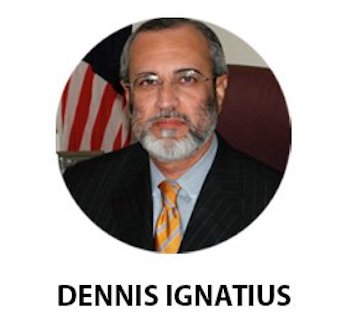The Khashoggi murder and Malaysia’s foreign policy

Dennis Ignatius, Free Malaysia Today
Amid growing international outrage over the brutal and gruesome murder of Saudi journalist and dissident Jamal Khashoggi, Foreign Minister Saifuddin Abdullah reiterated that “Malaysia’s bilateral relations with Saudi Arabia remain strong”, to quote one local report covering Putrajaya’s response to the killing. He was further quoted as saying that, “We are a friendly nation. We look at the big picture.” There was not even a hint of concern.
Many Malaysians, no doubt, found his comments deeply troubling.
Prime Minister Dr Mahathir Mohamad, however, quickly set the record straight: not mincing any words, and dismissing all that “big picture” nonsense, he asserted that Khashoggi’s killing was “an extreme and unacceptable act of tyranny” that “cannot be condoned”. He added that it is not something that the Pakatan Harapan (PH) government can accept.
Murder most foul
According to Turkish authorities, the murder of Khashoggi was carried out by a professional team of Saudi officials who lay in wait for him at the Saudi consulate in Istanbul. After being overpowered, he was reportedly dismembered while still alive by a forensic specialist (part of the Saudi team) and his remains disposed of.
The official Saudi narrative of the murder has been anything but credible. After insisting for days that Khashoggi had left the consulate alive, the Saudis, faced with mounting evidence of their complicity, now admit that Khashoggi was indeed killed in the consulate. However, they conveniently maintain that it was the work of rogue agents acting without official sanction.
Observers familiar with the way the Saudi kingdom operates insist that such an operation could not have been carried out without the knowledge of Crown Prince Mohammad Bin Salman (also known as MBS), the real power behind the throne. The prince has, in fact, a history of rash and reckless behaviour.
Whatever it is, Khashoggi’s murder has shocked the world. Even some of Jeddah’s strongest supporters were disturbed by the sheer barbarity of it all and are demanding a full and transparent investigation. In the meantime, many senior business and political leaders are boycotting the ongoing “Davos in the desert” conference (a key initiative of MBS) while both the German chancellor and the Canadian prime minister have called for a ban on arms exports to Saudi Arabia.
A foreign policy that reflects the new Malaysia
Under such circumstances, the foreign minister’s reiteration of business as usual with the Saudi government was clearly inappropriate.
More than that, it is an indication that the foreign ministry has yet to think through what the new Malaysia stands for and how best to reflect the values and hopes of a free and democratic society premised upon respect for the rule of law.
The prime minister’s UN speech and his pledge to ratify all outstanding UN human rights conventions should have been seen as an indication of Malaysia’s new commitment to human rights, among other matters. It is one thing for the foreign ministry to table the prime minister’s speech in Parliament and declare it to be our policy; it is quite another to give it full expression in the positions we take on international issues.
The limits of Islamic solidarity
Clearly, one of the things that needs to be addressed going forward is the lack of a consistent human rights dimension in our foreign policy. Out of a misguided sense of Islamic solidarity, we have, for example, tended to keep silent when Muslim despots target their own people.
Even now, we remain largely ambivalent to the carnage that Saudi Arabia (with US and UK support) is inflicting on Yemen, one of the poorest countries in the world. More than 10,000 Yemeni civilians have been killed while millions are on the brink of what the UN warns might be the “largest famine the world has seen for many decades”. What the Saudis are doing to Yemen is nothing short of a crime against humanity; silence is simply not an option anymore.
With MBS now working with the hawks in Washington and Tel Aviv to plot regime change in Tehran, things are about to get a lot worse. Hasn’t the slaughter and destruction in Afghanistan, Iraq, Libya and Syria been enough? Have we learned nothing of the horrendous consequences of regime change? How many more bombed-out cities, how much more death and destruction do we need to see before we demand that the Saudis and their backers in Washington stop this madness?
Before they came to power, many PH leaders expressed outrage against the carnage in Yemen and pressed for the withdrawal of all Malaysian armed forces support personnel from the Saudi-led coalition. There was no talk then about “big picture” diplomacy.
A principled foreign policy
With his remarks on the Khashoggi murder, Mahathir has sent a clear message that there are limits to Islamic solidarity, that a principled foreign policy obliges us to speak out against injustice and to actively promote the cause of peace in the world.
The days when we close our eyes to human rights abuses and war-mongering for the sake of political expediency are now over. The foreign ministry, like other ministries, must rise to the challenge of Malaysia Baru and give expression to the values that premise it. The people expect no less.

